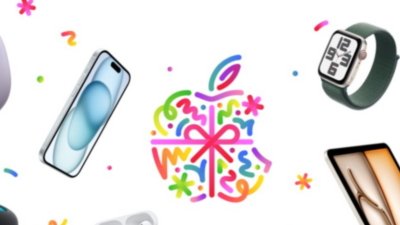The App Store has about 13,000 games in 19 separate categories, ranging from old-fashioned board games to complex first-person shooters. Many games are the work of independent developers like Tapulous, creator of the "Tap Tap Revenge" series.
But brands like EA have an advantage with popular licenses like Tetris and The Sims 3, which casual audiences are familiar with. The latest version of The Sims released simultaneously on the iPhone and PC in June. It is priced at $9.99.
Larger companies like Gameloft are now looking to take a bigger piece of the action. Those companies typically spend more money to develop a game, well beyond what most independent developers are able to invest.
"Although the top iPhone games are made by independents today, the big publishers will strike back," Jeremy Liew, a managing director at venture capital firm Lightspeed Venture Partners, told Reuters. "The iPhone only offers one way for games to get discovered today, and that favors the cash-rich big publishers."
Still, inexpensive games seem to sell the best. While new titles like Metal Gear Solid Touch might jump to the top of the charts upon release, the $7.99 price tag seems to deter some buyers over time. Meanwhile, $0.99 offerings like Bolt Creative's Pocket God – which offers regular updates with new content – continue to appear consistently in the top 10 paid applications.
And given those 13,000 other games to compete with, and a total of 65,000 applications, standing out in the crowd on the iPhone's App Store has become increasingly difficult. The Wall Street Journal profiled some of the methods developers have employed to gain attention, from guerilla marketing tactics to temporary price cuts.
For a title like Gameloft's "Hero of Sparta," the price cut method seems to work. A reduction to $0.99 helped to propel the title into the top 10 paid applications on the iPhone. Similarly, a four-day $4 price cut for Peggle, from PopCap Games, reportedly increased sales by a magnitude of 20 to 25.
Appearing in the top 25 list of applications is apparently key for developers to find success, so they must find unique ways to promote their products, and price them competitively, to achieve that level of awareness.
Many developers also offer demos of their games to entice users for exposure. The free sample of Metal Gear Solid Touch has earned nearly 60,000 ratings from users, while the paid version has managed just over 1,000 reviews.
Having a proven brand doesn't hurt either. Gameloft's recently-released iPhone adaptation of the Ubisoft license Assassin's Creed is one of the top selling items on the App Store, despite its $4.99 price tag among a sea of $0.99 titles.
And then there are entirely unconventional methods, such as this one discovered by the Wall Street Journal: "Some developers try to capitalize on popular brands by embedding those brand names into their own apps' descriptions. For example, a recent search for EA, the brand for game giant Electronic Arts Inc., turned up 15 games from a company called Digital Chocolate Inc. A close look at the games' description showed that the word "each" was abbreviated to "ea." Digital Chocolate Chief Executive Trip Hawkins was a co-founder of EA."
 Slash Lane
Slash Lane













 Amber Neely
Amber Neely
 Andrew Orr
Andrew Orr
 William Gallagher
William Gallagher


 Christine McKee
Christine McKee
 AppleInsider Staff
AppleInsider Staff
 Chip Loder
Chip Loder








23 Comments
noomero oooono
Gee thanks for your intriguing post, 'success'. FAIL.
Apple is going to have to come up with a better way to sort through or categorize the tens of thousands of titles on the app store. If a user wants to find an app of a particular type, he must wade through several results (many of which are junkie and amateur) before finding the serious software developers who create a truly worthy app. It's frustrating and time consuming to find the great apps.
Additionally, so many of us have been burned when we download a bummer app that we're all a little gun shy to spend $5-10 on a new title. Why not offer a 'return/refund/exchange' policy if you don't want the app after 30 minutes? I don't know how to flesh out the details and the technology - it's just an idea.
It will be nice to see the 'big game' publishers developing truly amazing apps for iPhone. One has to wonder if, much like the PC, the game developers will drive performance of the hardware?
I'm still trying to figure out the self-esteem boosting qualities in being the first poster in a thread. Is it because of parental inattention? Loss of girlfriend? Sore wrist? What?!
Love the app store but the search is horrible. reminds me of ebays growing pains when they got really popular. Apple needs to add more cAtegories. Its almost impossible to find apps unless you read about them somewhere else or use one of the third party app store extension apps or websites
Still, inexpensive games seem to sell the best. While new titles like Metal Gear Solid Touch might jump to the top of the charts upon release, the $7.99 price tag seems to deter some buyers over time. Meanwhile, $0.99 offerings like Bolt Creative's Pocket God ? which offers regular updates with new content ? continue to appear consistently in the top 10 paid applications.
What this article ignores is that the top lists are unit sold based and not revenue. If you compare games that sell for $0.99 and $9.99, the former has to sell 10x more to make the same revenue (ignoring Apple's 30% cut). This means that a more expensive game doesn't have to sell as many copies to make the same or even more profit.